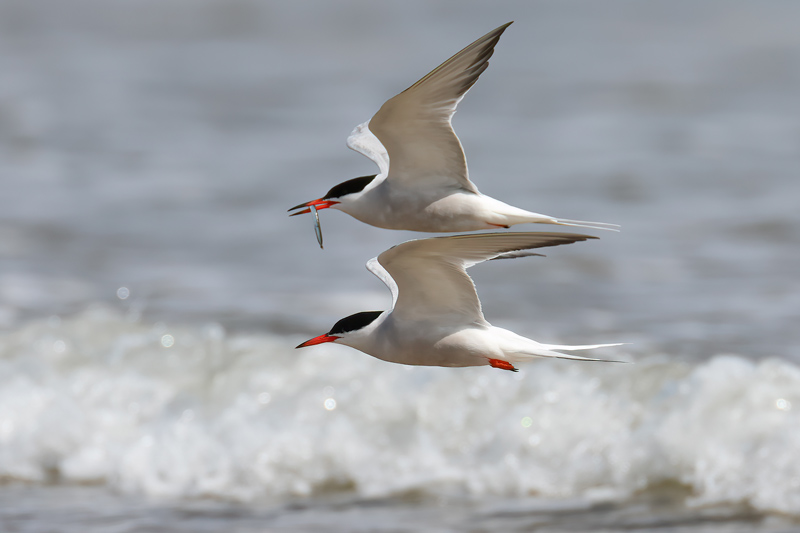Thousands of seabirds are dying this summer across the UK as the Highly Pathogenic Avian Influenza (“Avian Flu”) outbreak continues for a third year. Having suffered decades of declines, seabirds are now being pushed to the brink as the virus devastates colonies of species that were already recognised as needing urgent help, including red listed Kittiwakes and amber listed Guillemots and Tern species. The RSPB are calling for the governments of the UK to urgently publish their long overdue Seabird Conservation Strategies to address wider marine challenges and relieve the mounting pressure on seabirds.
The RSPB has raised the alarm call for seabirds as Avian Flu continues to put many species at risk across the UK. Thousands of seabirds are reported to have already died this summer, with 21 of the UK’s 25 breeding seabird species now having tested positive for the virus since 2021.
Continuing into its third year, Avian Flu has been tearing through seabird colonies around the UK with devastating effects. Having suffered decades of declines, seabirds are now being pushed to the brink as the virus devastates colonies of species that were already recognised as needing urgent help, including red listed Kittiwakes and amber listed Guillemots and Tern species.

Common Tern, copyright Glyn Sellors, from the surfbirds galleries
Recent outbreaks along the East coast of Scotland, Wales, Northern Ireland, the Midlands and Northern England are all causing grave concern. Across the RSPB’s nature reserves alone, so far over 3000 birds have been recorded dead as a result of the virus in 2023, adding to the 17,000 fatalities reported across RSPB sites in 2022. Among them, earlier this year 800 Black-headed Gulls were found dead at RSPB St Aidan’s, near Leeds, and 600 were suspected to have died due to Avian Flu at RSPB Saltholme near Middlesborough. Meanwhile 20% of the breeding Black-headed Gull colony at Belfast Window on Wildlife were also lost.
While the total death toll is unknown, it is estimated that tens of thousands of birds have fallen victim to Avian Flu over the past three years in the UK, with many large outbreaks this year taking place both inland and along our shores.
According to the RSPB, seabirds will struggle to bounce back from the effects of Avian Flu as quickly as other species as they are long-lived and slow breeding. Some species can take up to 5 years to start breeding, and then only produce 1 to 2 chicks a year if they are successful. The impact of this ongoing outbreak on these populations will therefore be felt long into the future.
As Jeff Knott, director of policy and advocacy at the RSPB describes: “As a vital indicator of the health of our seas and marine habitats, seabirds are already feeling the impacts of the nature and climate emergency here in the UK.
The additional pressure of Avian Flu across the UK right now is a cause for great concern, as the cumulative three-year effect of this virus, on top of decades of declines amongst our seabirds, could potentially be catastrophic for some of our much loved, and most at risk, species.”
Under immense pressure from other challenges at sea, including sandeel fishing, warming marine temperatures and entanglement with discarded fishing gear, seabirds face a cocktail of threats to their survival, the charity warns.
Jeff continues: “Our seabirds are in crisis, and this must be the moment that our governments step up to the challenge of addressing wider marine pressures and subsequent seabird declines. There is no time to waste, and so all four governments of the UK must urgently publish their long overdue Seabird Conservation Plans to help build the resilience and long-term health of our seabirds. Without robust measures to address these challenges, and with Avian Flu ripping across the UK as we speak, our seabird colonies are being pushed to the brink.”